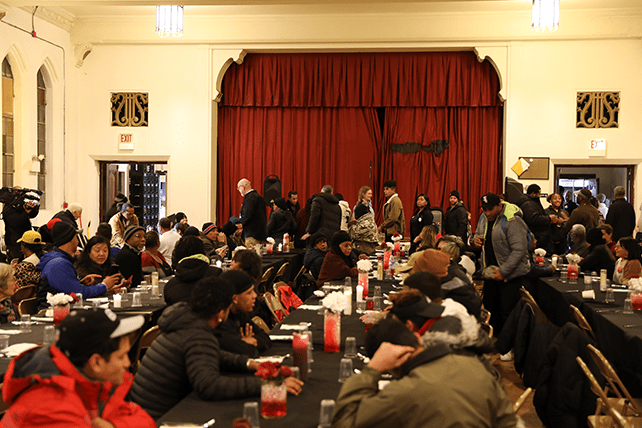Morris became involved in the issue of migrants in the city about a year ago, after a fellow community leader invited him to speak to local residents worried about migrants moving into a makeshift shelter in a former school. Morris talked about the importance of Woodlawn being a welcoming community.
Soon after, he met Gean and began organizing efforts at the Parkway Gardens church to provide hygiene packets and deliver food and clothes to the shelter where migrants were staying.
Morris understands the concerns of his congregants and their neighbors and supports their desire for more communication. He wants to see city officials hold community forums where they could listen to residents and explain what the government is doing about the influx of outsiders. He also believes the government should work more closely with both the migrants and the neighborhood to find solutions that work for everyone.
“I think there still needs to be more open lines of communication, and that would deter a lot of the negative pushback that they’re getting,” he said. “It may not deter it completely, but at least people would feel they’re not being put upon.”
At the same time, Morris would like to see more understanding from community members. “I would like to see communities, especially African American communities, understand the situation of the migrants is not that far from our own situation,” he said. “Years ago, when folks were coming up out of the South and then moving into Chicago, they were rejected by the white community.”
He cites the Bible’s Book of Deuteronomy, saying, “Remember the stranger when he is in your midst. Treat them with love and treat them with kindness, remembering that you, yourself, were a stranger in the land at one time.”
When he spoke with RNS, Morris had just finished preparing for the church’s Friday food and clothing drive, which has been open for more than a decade and serves 60 to 75 people weekly — with an increasing number of migrants. As a result, the church has been training its volunteers to use a translation app on their cellphones to understand the newcomers.
Black said the majority of community residents want to find a way to both support the migrants and build support for a part of Chicago that has been historically underserved and underresourced. At the banquet at First Presbyterian, a speaker from Southside Together Organizing for Power, a community organizing group, talked about what it means to have Black and brown unity.
“It’s basically founded on this idea that there’s no scarcity,” Black said. “Not only is there enough for everybody — for the asylum-seekers, and the historically disenfranchised populations of South Side Chicago.”
He added, “We have so much more to gain from our unity than from the division which is being manufactured and orchestrated by interests that don’t want these communities to get the resources they need.”
This article originally appeared here.

